Understanding White-Collar Crimes in Texas
White-collar crimes are nonviolent offenses that typically involve illegal financial gain. They may be committed by individuals, businesses, or government entities.
These crimes are often associated with deception, fraud, or breaches of trust. Examples of white-collar crimes include embezzlement, money laundering, securities fraud, and tax evasion.
If you are under investigation or have been charged with a white-collar crime, seek legal counsel to gain an advocate who will guide you through the legal system.
Types of White-Collar Crimes We Defend Against
White-collar crimes often involve intricate schemes and complex financial transactions. Not all criminal defense attorneys have the knowledge and experience required to handle these cases.
At Turnbull Legal Group, we are well-versed in defending individuals and businesses facing allegations of a range of financial crimes. We’re ready to take on all types of cases, from tax evasion to securities fraud.
Fraud
Fraud is a broad category that encompasses deceptive acts made for financial gain:
- Credit Card Fraud
Using stolen credit cards or card information to make unauthorized purchases. - Insurance Fraud
Filing false insurance claims or exaggerating losses to receive undeserved payouts. - Mortgage Fraud
Misrepresenting information on mortgage applications to obtain loans under false pretenses. - Healthcare Fraud
Submitting fraudulent claims to government healthcare programs like Medicare or Medicaid. - Bankruptcy Fraud
Concealing assets or providing false information during bankruptcy proceedings. - Mail and Wire Fraud
Using mail, phone, or electronic communication to carry out fraudulent schemes.
Nearly any Texan can be accused of fraud, whether rightly or wrongly. When that happens to you, Turnbull Legal Group is on your side.
Securities Fraud
Some types of fraud are related to investments or the stock market. Securities fraud might involve manipulating financial markets or defrauding investors:
- Insider Trading
Trading based on nonpublic, confidential information. - Ponzi Schemes
Using new investors' money to pay off earlier investors, with no real investment activity taking place. - Pyramid Schemes
Recruiting individuals with promises of high returns based primarily on recruiting others into the scheme, not actual product sales.
The Enron scandal is a well-known example of securities fraud.
Money Laundering
Money laundering involves acts taken to conceal the origin of illegally obtained funds:
- Structuring
Making deposits in amounts below reporting thresholds to avoid detection. - Shell Companies
Creating fake businesses to move illicit funds through seemingly legitimate channels.
Even if someone is not prosecuted for the original crime that earned the illegitimate funds, they can face money laundering charges for how they deal with the funds.
Tax Evasion
Both businesses and individuals can be charged with illegal tax evasion:
- Underreporting Income
Failing to report all income earned. - Claiming False Deductions
Taking deductions not allowed by tax laws. - Hiding Assets Offshore
Moving assets to foreign accounts to evade taxes.
Conviction on federal tax evasion charges can lead to years of imprisonment.
Bribery
Someone who commits bribery attempts to influence another person’s decision-making by providing them with something of value:
- Public Corruption
Offering bribes to government officials for favorable treatment. - Commercial Bribery
Offering incentives to private individuals to gain a business advantage.
Many professions have strict rules about receiving gifts, and running afoul of these rules could lead to bribery charges.
Embezzlement
Someone who unlawfully takes money or property entrusted to their care has committed embezzlement. This crime is common in employment relationships, such as when workers steal money or property from an employer.
Misappropriation of funds is a type of embezzlement that involves using money designated for one purpose for an unauthorized purpose. For example, someone who takes funds intended for a charity and uses them to buy a personal vehicle has misappropriated those funds.
Antitrust Violations
Antitrust activities include engaging in illegal practices that stifle competition, such as price-fixing or bid-rigging.
Environmental Crimes
Businesses and individuals can be prosecuted for violations of laws designed to protect the environment, such as illegal dumping or polluting.
Cybercrimes
Some white-collar criminals use computers and networks to conduct their activities. Common cybercrimes include phishing, identity theft, and ransomware attacks.
Potential Penalties for White-Collar Crimes
White-collar crime penalties can be severe, ranging from hefty fines to significant prison sentences. Factors such as the nature and severity of the offense, the amount of money involved, and the defendant's criminal history may affect the sentence.
Beyond the Courtroom: The Life-Altering Consequences of a Conviction
While the legal penalties for white-collar crimes are severe, the consequences extend far beyond fines and prison sentences, impacting nearly every aspect of a person's life:
- Damage to Career
Someone convicted of a crime can lose their professional license and be unable to find work in their field. - Financial Ruin
The combination of fines, restitution, legal fees, and lost income can cause severe financial hardship, potentially leading to bankruptcy. - Social Isolation
The shame and stigma associated with a criminal conviction can lead to social isolation, strained relationships, and the loss of personal support systems. - Restrictions on Travel
A criminal record can limit travel opportunities, particularly to certain countries. - Difficulty Obtaining Credit
Convictions for some types of financial crimes can severely impact credit scores, making it challenging to secure loans, mortgages, or credit cards. - Loss of Voting Rights
Until their full sentence is completed, felons lose their right to vote in Texas.
The long-term impact of a white-collar crime conviction can be devastating. Experienced legal counsel can mount a strong defense and mitigate the potential consequences.
How We Fight White-Collar Charges
At Turnbull Legal Group, our team employs a strategic and client-focused approach:
- Thorough Investigation
We conduct an independent investigation to gather evidence, interview witnesses, and analyze financial records. - Aggressive Defense
We build a strong defense tailored to your case, challenging the prosecution's evidence and arguments. - Negotiation Skills
We are skilled negotiators and will work tirelessly to reach a favorable plea agreement when possible. - Trial Experience
When a trial is necessary, we are prepared to present a compelling case in court and fight vigorously for your rights.
To learn what we can do to defend your case, contact us for a free consultation.
Understanding Criminal Liability for the Actions of Others
Individuals can be held criminally liable for the actions of others, even if they did not directly engage in the unlawful activity. This often arises in situations where individuals have a supervisory role. If you are an employer, you can work with a white-collar crime lawyer to understand whether you could be held liable for the actions of your employees.
Conspiracy Charges in White-Collar Crimes
A conspiracy conviction involves proving that two or more individuals agreed to commit an unlawful act. The prosecution must establish that an agreement existed between the parties and that at least one overt act was taken in furtherance of the conspiracy.
Building Your Defense: Potential Strategies to Fight White-Collar Crime Accusations in Texas
We’ll review your case and determine what potential defenses we can raise against your white-collar crime charges.
- Lack of Intent
Asserting that you did not act with the requisite criminal intent; the incident was due to a mistake, accident, or misunderstanding. - Good Faith
Claiming that you acted in good faith, believing that your actions were legal. - Entrapment
Arguing that law enforcement or government agents enticed you into committing a crime you wouldn't have otherwise committed. - Violation of Constitutional Rights
Asserting that law enforcement violated your rights during the investigation or arrest.
The most effective defense will depend on the facts of the case.
What to Do When You’re Facing White-Collar Crime Allegations
If you are under investigation or have been charged with a white-collar crime, it's essential to remain calm and know your rights.
Exercise Your Right to Remain Silent
You have the right to remain silent and avoid answering questions from law enforcement without an attorney present. Anything you say can be used against you in court.
Contact an Attorney Immediately
Our dedicated white-collar crime defense lawyer can advise you on your legal options, build a strong defense, and represent your best interests throughout the legal process.
Appealing a White-Collar Crime Conviction
An appeal is a request that a higher court review the lower court's decision and determine whether any legal errors were made that affected the outcome of the case. If you have been convicted of a white-collar crime, you have the right to appeal the verdict or sentence.
Don't Let Criminal Charges Derail Your Life
White-collar crime allegations can have devastating consequences for your career, reputation, and freedom. Don't face these charges alone — schedule a free consultation today!






























